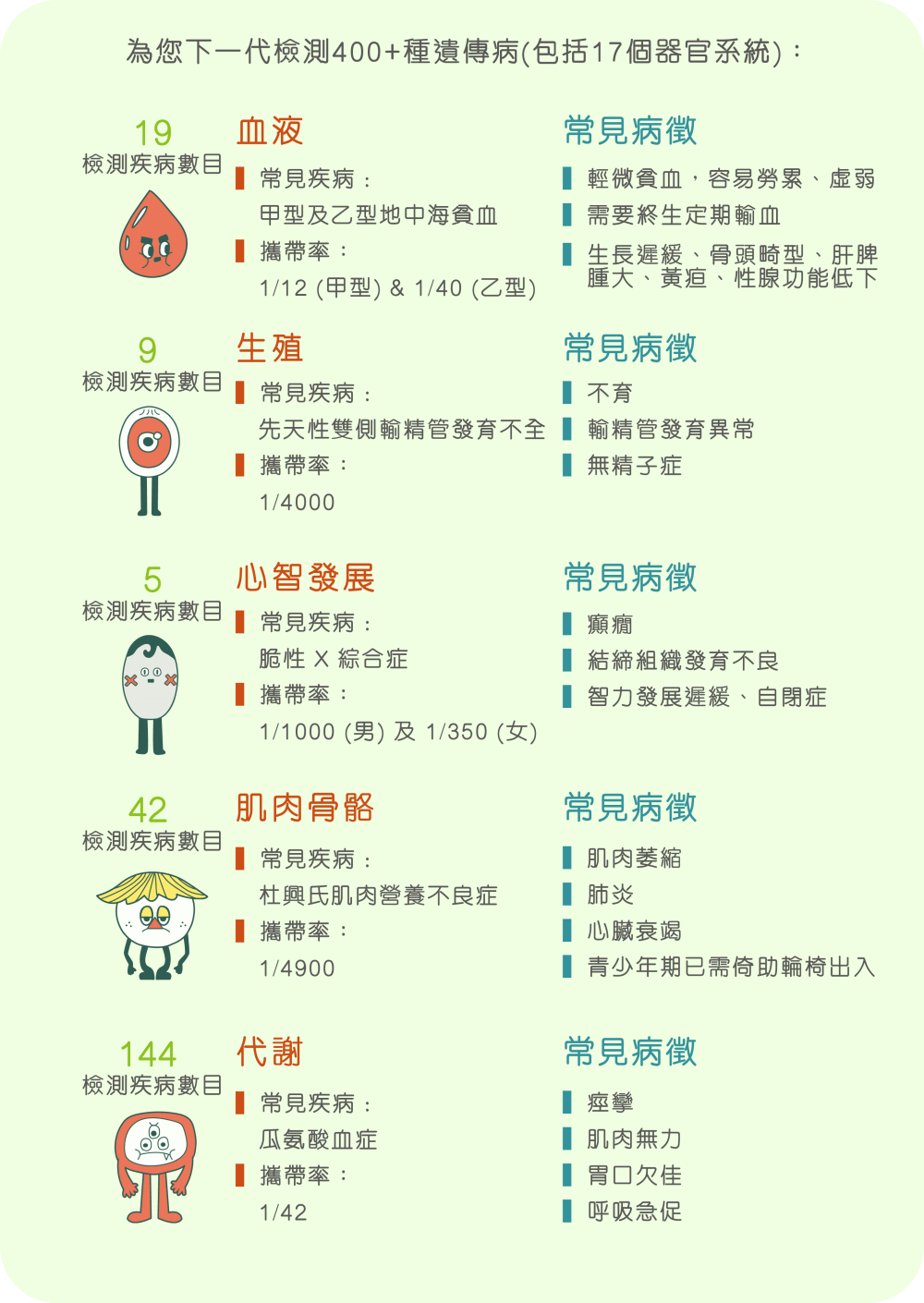Autosomal recessive inherited disease
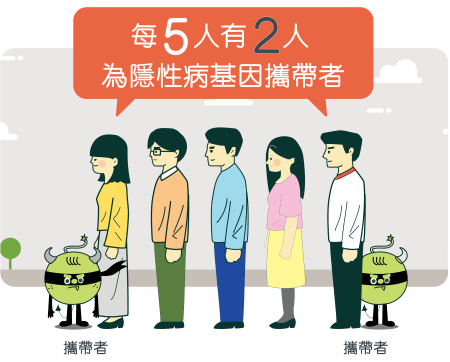
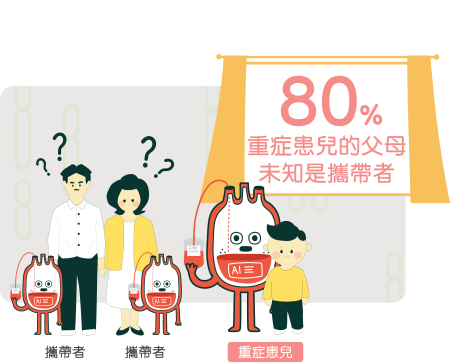
In average, each person carries 2.3 genetic conditions
| Carriers are usually asymptomatic and will never be aware of it unless they perform a genetic carrier screening | |
| 2 out of 5 people carries defective genes | |
| For example, around 10% of the Chinese population are thalassemia carriers, while most of them are unaware of the condition | |
| Defective genes can be inherited and causing diseases |
Autosomal recessive genes effects your child up to 75%
| Caused by autosomal recessive genes | |
| Owning a pair of recessive genes will lead to autosomal recessive inherited disease | |
| Carrier with only one copy of mutation for a recessive disease has no symptoms | |
| With two carriers as parents; | |
| The child will have up to 25% chance of inheriting a carrier gene and being born with a severe disease. |
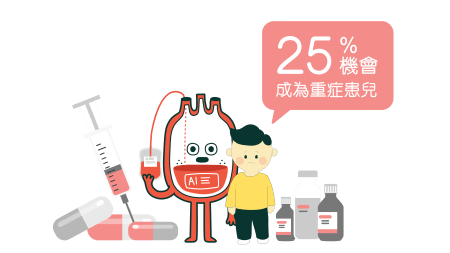
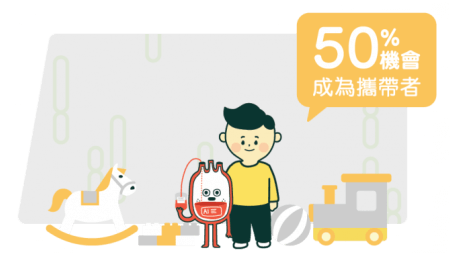
NJ Series prevents your offspring from life-threatening inherited diseases
| Reveal the genetic conditions of you and your partners | |
| Analyse the genetic risk of your children | |
| Hereditary risk assessment for better preparation | |
| For positive result cases, you can minimize the risk of carrier diseases with IVF and related technologies |
Suitable For:
(Recommended for couples to conduct the test at the same time)
| Family planning - couples planning to get married and planning to have a baby (especially for those who has/have a disease family history) | |
| Consanguineous couples | |
| Couples planning to have in vitro fertilisation (IVF) treatment | |
| Couples who have unexplained abortion history | |
| Newborn baby | |
| Those who want to know their carrier disease status |
Test Specifications
| Test Code | Test Description | Methodology | Specimen Requirements | Turnaround Time |
|---|---|---|---|---|
| RGD | Screening for 409 Carrrier diseases | NGS (Next Generation Sequencing) |
6ml blood in Lavender-top EDTA tube / 10 Buccal Swabs |
4-6 Weeks |
| RGE | Screening for 484 Carrrier diseases | 6ml blood in Lavender-top EDTA tube / 10 Buccal Swabs + Saliva |



